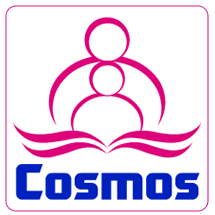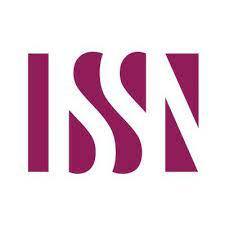Role of Self-Studies in Promoting Learning among Students at University Level
Role of Self-Studies in Promoting Learning among Students
Keywords:
Self-studies, Promoting Learning, University LevelAbstract
The purpose of this study was to investigate the role and impact of self-studies on learning among students at the Mansoura University, Egypt. The study utilized a survey method and was descriptive in nature. The population of the study comprised all 836 students in the University Development Center, with a sample size of 220 students selected using simple random sampling technique. A five-point Likert Scale questionnaire was used to collect data on the role and impact of self-studies on learning. The collected data was analyzed using statistical package for social sciences (SPSS), with simple mean, frequency, and percentage used for the analysis. The findings suggest that incorporating critical thinking into daily lessons and encouraging students to take responsibility for their own learning can enhance self-studies. It is recommended that further research should be conducted to better understand how students perceive responsibility for their own learning to create a conducive learning environment in the classroom. Additionally, sports activities can also be used to develop physical strength in students.
Downloads
References
Akhtar, S., Ali, M., & Baig, M. A. (2021). The role of self-study skills in promoting academic achievement among university students. Journal of Education and Educational Development, 8(1), 136-149.
Bangert, R. L. (2011). The instructional effect of feedback in test-like events. Review of educational research, 61(2), 213–238.
Bullough, R. V. (2019). Teacher education and reflectivity. Journal of Teacher Education, 1(2),
-20.
Butler, A. C. (2011). The critical role of retrieval practice in long-term retention. Trends in
cognitive sciences, 15(1), 20–27.
Coburn, N. R. (2009). Optimizing distributed practice: Theoretical analysis and practical
implications. Experimental psychology, 56 (4), 236–246.
Chorley, R. J. (2005). Implications of learning theories for effective technology integration and
pre-service teacher training: A critical literature review. Journal of Science Education, 2(1), 1-16.
Ericsson, K. A. (2005). Why study time does not predict grade point average across college
students: Implications of deliberate practice for academic performance. Contemporary
Educational Psychology, 30 (1), 96–116.
Eslaminejad, T. P. (2016). Relationship between Student’s Self-studies Learning Readiness and
Academic Self-Efficacy and Achievement Motivation in Students . International Education Studies, 10(1), 343-400.
Eyyam, R. D. (2014). Impact of use of technology in mathematics lessons on student achievement
and attitudes. Social Behavior and Personality: An International Journal, 42(1), 31-42.
Finley, S. Z. (2005). Researcher as artist/artist as researcher. Qualitative Inquiry, 1(1), 110-142.
Florez, I. R. (2011). Developing young children’s self-regulation through everyday experiences.
Young Children, 66(4), 46-51.
Johnson, C. I. (2009). A testing effect with multimedia learning. Journal of Educational
Psychology, 1(3), 621-670.
Kallweit, J. K. (2009). Conceptualizing the relations between executive functions and self-
Regulated Learning. The Journal of Psychology: Interdisciplinary and Applied, 143(4), 405-426.
Khalid, M., Waheed, A., & Farooq, M. U. (2021). The role of self-study in promoting learning among medical students. Pakistan Journal of Medical Sciences, 37(2), 434-438.
Layman, B. E. (2015). Engineering students and their learning of mathematics. In Current state of
research on mathematical beliefs XVII. Proceedings of Robertson (2011). The self-studies learning process of older, rural adults. Adult Education Quarterly, 55(4), 269-287.
Lewin, F. O. (2014). On the analysis of the factor of recall in the learning process. The
Psychological Review: Monograph Supplements, 11(1), 159-200.
Maudsley, G. J. (2010). Promoting professional knowledge, experiential learning and critical
thinking for medical students. Medical education, 34(7), 535-544.
McMillan, J. H. (2017). Enhancing college students' critical thinking: A review of studies.
Research in Higher Education, 26(1), 3-29.
Pinnegar, S. R. (2011). Guidelines for quality in autobiographical forms of self-study research.
Educational Researcher, 30(3), 13-21.
Pintrich, W. O. (2013). Regulation of motivation: Evaluating an underemphasized aspect of self
regulated learning. Educational Psychologist, 38(4), 189-205.
Rau, M. A. (2013). Interleaved practice in multi-dimensional learning tasks: Which dimension
should we interleave? Learning and Instruction, 2(3), 98–114.
Roediger, H. L. (2007). Testing improves long-term retention in a simulated classroom setting .
European Journal of Cognitive Psychology, 19 (4), 514–527.
Rostan, E. A. (2010). The relationship between self-regulated learning and academic achievement
among sample of Yarmouk university students. The Jordanian Journal of Educational Sciences, 6(4), 333-348.
Ruane, S. F. (2014). The Future Teachers' Autobiography Club: Preparing educators to support
literacy learning in culturally diverse classrooms. English Education, 26(1), 52-66.
Stokes, D. K. (2014). Analyzing personal teaching metaphors in preservice teacher education as a
means for encouraging professional development. American Educational Research Journal, 31(1), 197-224.
Tuckman, B. W. (2008). The effect of learning and motivation strategies training on university
students' achievement. Journal of University Student Development, 44(4), 430–433.
Vohs, K. D. (2010). Self-regulatory failure: A resource-depletion approach. Psychological
Science, 11(4), 249-254.
Willingham, D. T. (2013). Improving students’ learning with effective learning techniques
promising directions from cognitive and educational psychology. Psychological Science in
the Public Interest, 14 (1), 4–58.
Zulfiqar, S., Baig, M. A., & Memon, S. G. (2021). The impact of self-study skills on student engagement and motivation in higher education. Journal of Education and Educational Development, 8(1), 1-14.
Downloads
Published
How to Cite
Issue
Section
License
This is an Open Access article distributed under the term of the Creative Commons Attribution 4.0 International licenses permitting all use, distribution and reproduction in any medium provided the work is properly cited.

























